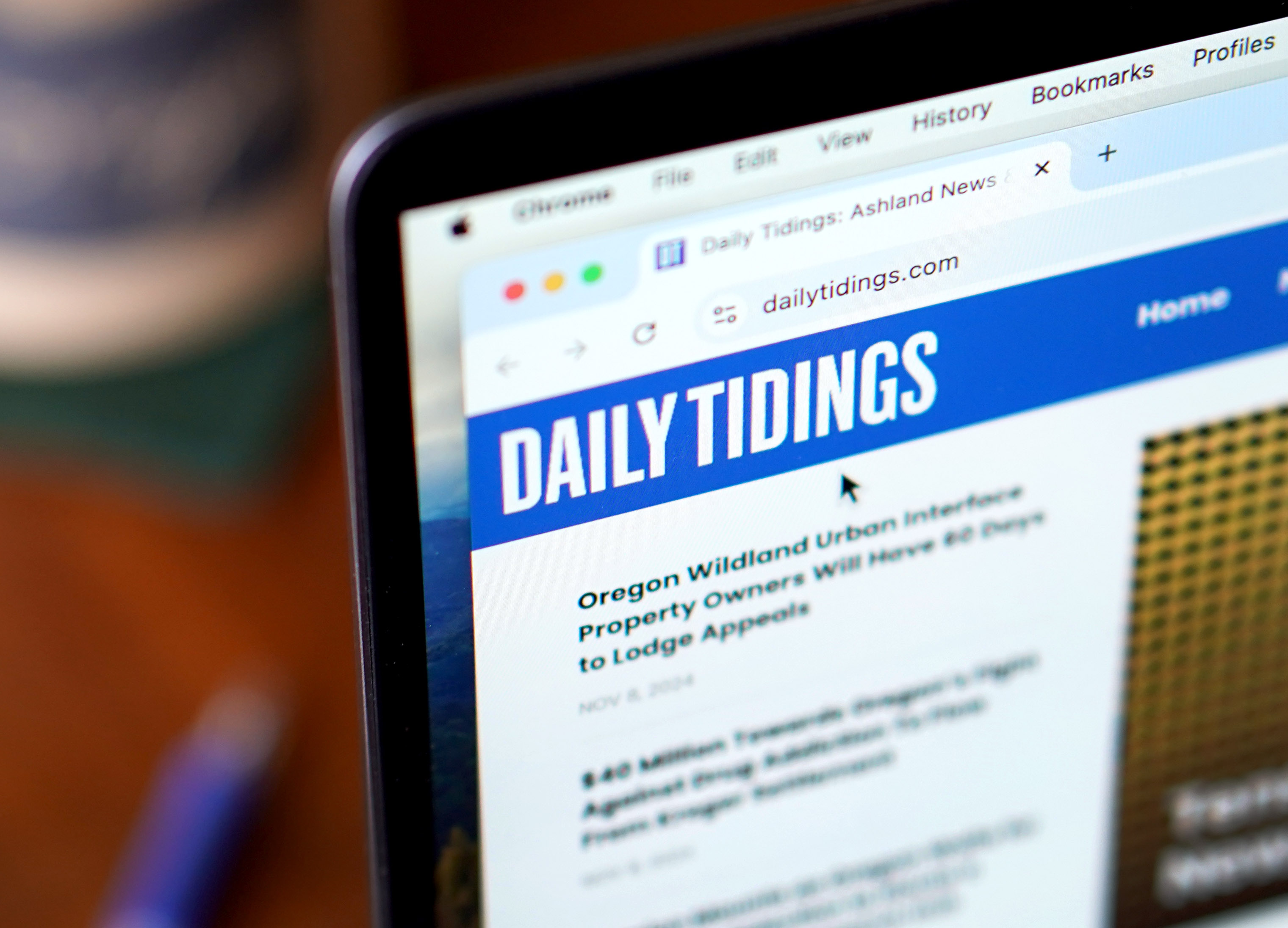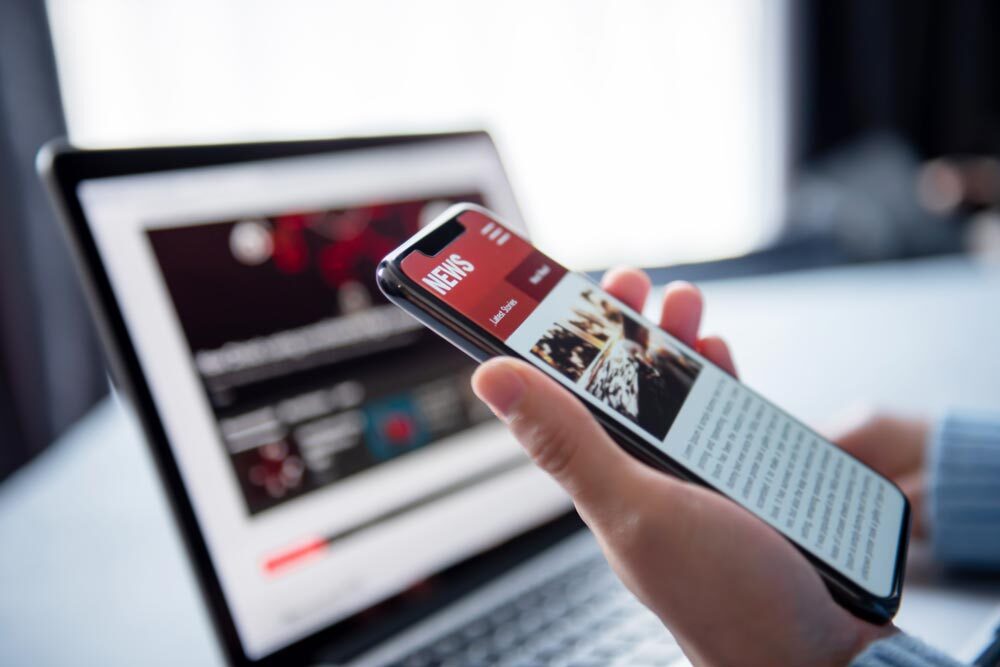Behind the Scenes at How stnews.live Publishes News
Wiki Article
The Significance of Fact-Checking on the planet of News Online
The frequency of false information in today's online news landscape has actually gotten to worrying levels. Fact-checking companies play a necessary duty in counteracting this pattern. They verify claims and improve the credibility of journalism. Nevertheless, the performance of these companies typically rests on their methods and public understanding. As audiences browse this intricate setting, the effects of their searchings for might shape the future of news usage and depend on. What does this mean for the integrity of information moving on?
The Rise of False Information in the Digital Age
How has the arrival of electronic innovation added to the spread of false information? The quick development of the net and social media systems has facilitated the circulation of information at an unmatched rate. Customers can share short articles, videos, and point of views with a mere click, often without validating the material's accuracy. Formulas focus on thrilling or emotionally billed material, causing a proliferation of misleading narratives that capture interest.In addition, the anonymity afforded by electronic systems allows people to spread out incorrect details without accountability (stnews.live). False information thrives in echo chambers, where individuals are revealed mostly to perspectives that enhance their beliefs, even more setting frauds. The saturation of information can overwhelm individuals, making it testing to recognize qualified sources from undependable ones. False information has actually ended up being a pervasive issue in the electronic landscape, influencing public point of view and trust in genuine news resources.
The Duty of Fact-Checking Organizations
Fact-checking companies play a crucial role in enhancing the trustworthiness of journalism by validating cases made in news records. Their initiatives are essential in combating misinformation, making sure that precise information prevails in the digital landscape. By holding media electrical outlets answerable, these organizations contribute considerably to notified public discourse.Enhancing Credibility in Journalism
While misinformation multiplies in the electronic age, fact-checking organizations play a crucial duty in improving the integrity of journalism. These organizations thoroughly confirm claims made in newspaper article, public statements, and social media messages, guaranteeing that info shared to the general public is accurate and reliable. By giving independent analyses, they serve as a crucial source for journalists, aiding them preserve high criteria of honesty. In addition, their initiatives advertise transparency in media, cultivating public trust. As target markets end up being increasingly discerning, the visibility of respectable fact-checking entities can distinguish trustworthy news sources from those that might spread out fallacies. Inevitably, the dedication of fact-checking companies to support reliability is crucial for the health of democratic discourse.Combating False Information Successfully
As misinformation continues to spread quickly throughout digital systems, the role of fact-checking companies comes to be increasingly essential in the fight for accurate info. These companies serve as guard dogs, looking at insurance claims made by public numbers and media outlets to guarantee responsibility. By utilizing rigorous research study techniques and professional evaluation, they confirm facts and clarify misleading stories. Their searchings for are disseminated with numerous networks, enlightening the public and cultivating crucial reasoning. Furthermore, collaborations with social media sites platforms improve their reach, permitting for punctual flagging of false details. As digital literacy grows, the influence of fact-checking organizations is vital in empowering audiences to recognize fact from fraud, ultimately contributing to a much more educated culture.Exactly How False Information Affects Public Understanding
False information substantially undermines trust in media, leading target markets to question the integrity of news resources. Because of this, individuals frequently are attracted in the direction of outlets that reinforce their current ideas, adding to the polarization of point of views. This dynamic creates a fragmented information landscape, where shared comprehending comes to be progressively challenging to attain.Count on in Media

Count on media has become increasingly vulnerable in the digital age, where the fast spread of incorrect details can skew public assumption. As false information multiplies throughout social networks and on-line systems, target markets frequently discover it challenging to recognize credible sources from undependable ones. This unpredictability cultivates suspicion, leading many individuals to question the motives behind news coverage. Depend on in developed media outlets has diminished, as customers significantly transform to different resources that may do not have extensive editorial criteria. This disintegration of count on not only impacts specific beliefs however also undermines the cumulative capacity to engage in informed conversations. Eventually, the honesty of journalism is at risk, highlighting the important requirement for effective fact-checking to restore confidence in the media landscape.

Polarization of Opinions
The boosting uncertainty towards conventional media has contributed to an expanding polarization of point of views amongst the general public. Misinformation, frequently disseminated through social media sites and on-line systems, plays a substantial duty in forming distinctive ideological separates. People often look for information that lines up with their pre-existing beliefs, strengthening their viewpoints while rejecting opposing point of views. This resemble chamber effect escalates divisions, causing a fragmented public discourse where consensus ends up being significantly elusive. In addition, sensationalized stories prosper in this atmosphere, even more skewing public perception and promoting mistrust in trustworthy sources. As polarization intensifies, the requirement for effective fact-checking comes to be paramount to bridge gaps and advertise informed discussions, inevitably making sure a more cohesive culture qualified of maneuvering complicated concerns.Techniques for Reliable Fact-Checking
Efficient fact-checking relies upon a methodical method that consists of complete research, confirmation of sources, and crucial evaluation of cases. A fundamental technique is cross-referencing info from several qualified sources to validate its precision. Fact-checkers frequently use specialized data sources and archives to map the beginning of particular declarations, guaranteeing that the reported information lines up with documented proof.Another essential method entails scrutinizing the context in which insurance claims exist. Deceptive information can occur from out-of-context quotes or careful data use. By analyzing the more comprehensive narrative, fact-checkers can determine potential predispositions or misconceptions.
Involving with specialists in relevant fields can give quality and insight that boosts the fact-checking process. This collaboration can discover subtleties that laypeople might ignore - stnews.live. Ultimately, a disciplined strategy incorporating these methods promotes a more educated public, improving the integrity of details disseminated in the digital age
The Impact of Social Media Site on News Intake
Just how has social networks transformed the method individuals take in news? The emergence of systems like Facebook, Twitter, and Instagram has my site notably modified news intake patterns. News is now distributed rapidly, enabling customers to gain access to real-time updates and engage with content via likes, shares, and remarks. This immediacy has fostered a choice for bite-sized information, often at the cost of thorough analysis.Moreover, social media sites enables individualized news feeds, where formulas curate content based upon individual preferences, creating resemble chambers that might limit exposure to varied point of views. The duty of standard news outlets has lessened as people increasingly count on peer recommendations and trending subjects. Consequently, the reliability of details is typically jeopardized, as sensationalism can outweigh valid reporting. On the whole, social networks has actually improved news intake, highlighting rate and customization while challenging the criteria of journalistic integrity.
Empowering Audiences to Identify Trusted Resources

Additionally, checking out the authorship and organizational history of newspaper article can reveal prospective prejudices. Cross-referencing info throughout several reliable electrical outlets further boosts the confirmation procedure. Using digital devices, such as web browser expansions that rank the reliability of websites, can likewise help in determining trustworthy details. By actively involving with these resources and cultivating a critical way continue reading this of thinking, target markets can better equip themselves to discern dependable news sources, inevitably cultivating a much more educated society in the middle of the complexities these days's media environment.
The Future of Journalism and Fact-Checking
As the media landscape advances, the future of journalism and fact-checking encounters both tests and possibilities. The increase of electronic systems has actually democratized information circulation, allowing varied voices to arise. This has actually also led to the expansion of misinformation, necessitating durable fact-checking mechanisms. Journalists will progressively rely upon technology, including AI tools, to validate facts quickly and efficiently.Partnership between news companies and fact-checking entities is expected to reinforce trustworthiness and transparency. Target market engagement will certainly play a crucial function, as educated readers become substantial companions in identifying trustworthy content.
The demand for accountability and precision is likely to grow, pressing reporters to promote high requirements in their coverage. Ultimately, the future of journalism may depend upon its capability to adjust to technical innovations while keeping journalistic honesty, ensuring that fact-checking continues to be a cornerstone of legitimate news.
Regularly Asked Inquiries
Exactly How Can I Report Misinformation I Experience Online?
To report false site link information experienced online, individuals can use platform-specific coverage devices, supply clear evidence, and share the details with fact-checking companies. Involving with community conversations can also help increase recognition about the false information.What Are Usual Signs of Misinformation in News Articles?
Typical signs of misinformation in news short articles consist of marvelous headlines, absence of legitimate resources, psychological language, inconsistent realities, and absence of writer credentials. Readers should seriously evaluate content for these signs to discern precision.Exactly How Do Fact-Checkers Verify Resources?
Fact-checkers verify resources by cross-referencing info with trustworthy databases, consulting professionals, and examining the initial context of claims. They additionally assess the dependability of the sources, making sure exact and trustworthy details for public usage.What Lawful Activities Can Be Taken Versus False information?
Lawsuits versus misinformation may consist of defamation claims, cease-and-desist orders, and governing charges. Victims can seek remedy via civil courts, while some territories impose penalties or permissions on platforms disseminating false details.Are There Apps for Fact-Checking News On-The-Go?
Various applications exist for fact-checking news on-the-go, consisting of Snopes, FactCheck.org, and PolitiFact. These applications assist individuals confirm insurance claims swiftly, advertising educated decision-making and cultivating an extra critical strategy to consuming news in real-time.Report this wiki page